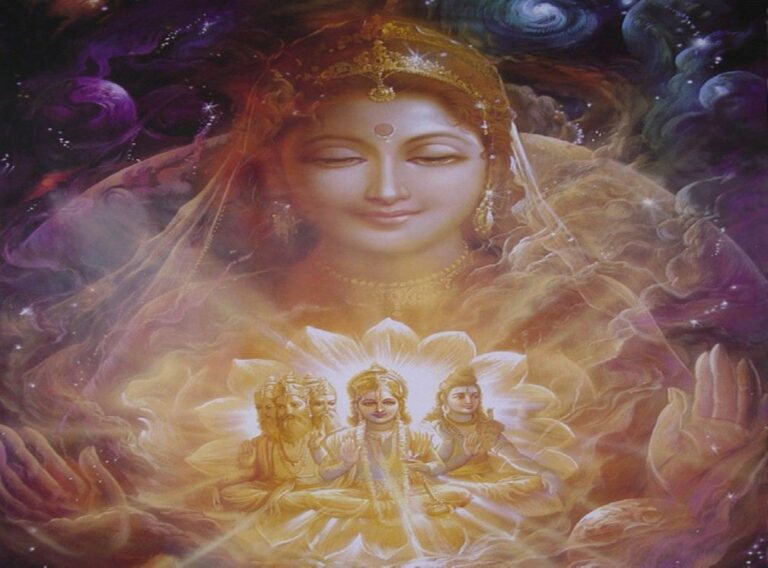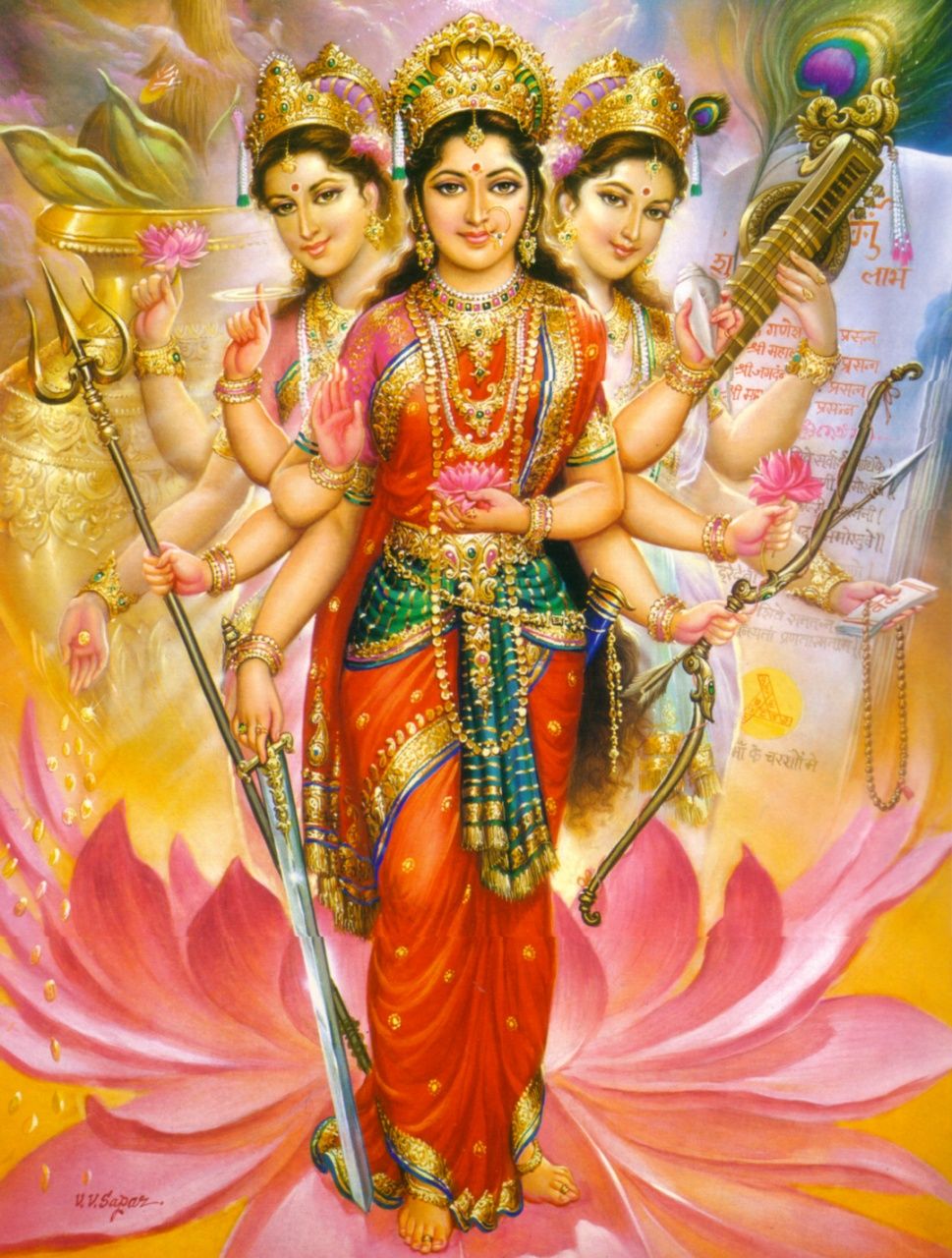Meaning
The name “Gowri” has roots in Sanskrit, an ancient Indo-Aryan language. In Sanskrit, it’s a feminine form derived from “Gauri,” meaning “white” or “fair.” This refers to the complexion of the Hindu goddess Parvati, who is also known as Gauri.
Parvati is one of the most revered goddesses in Hinduism, associated with power, beauty, and fertility. She is the wife of Shiva, another prominent deity, and they are considered a divine couple representing cosmic balance.
“Gowri” carries profound symbolism within Hindu mythology. The white color often symbolizes purity, innocence, and enlightenment. It represents Parvati’s spiritual qualities and her connection to ultimate truth.
Over time, the name “Gowri” has transcended its religious origins and become a popular given name in South Asia, particularly India and Sri Lanka. It is seen as a name that signifies beauty, grace, and spiritual strength.
The popularity of the name may also be attributed to its phonetic appeal and the cultural significance associated with the goddess Gauri.
Gowri is a feminine given name of Sanskrit origin, deeply rooted in Hindu mythology and culture.
It is one of the most prominent names associated with Parvati, the beloved consort of Lord Shiva. In Sanskrit, “Gowri” translates to “the beautiful one” or “white as snow.” This reflects the goddess’s ethereal beauty and purity.
The name carries a rich cultural significance in India and among Hindus worldwide.
It is considered auspicious and is often bestowed upon baby girls with hopes for their beauty, grace, and virtuous nature.
Beyond its association with Parvati, Gowri also holds symbolic meaning in various Hindu rituals and traditions:
- Gowri Puja: A significant festival dedicated to Goddess Parvati, celebrated across India. During this festival, devotees offer prayers and worship to Gowri for blessings, prosperity, and marital happiness.
- Symbol of Shakti: Gowri embodies the feminine divine energy (Shakti) – representing power, creativity, and motherhood.
The name “Gowri” has transcended geographical boundaries and cultural influences, gaining recognition in other parts of the world where Hinduism is practiced.
It stands as a testament to the enduring influence of Hindu mythology and its ability to inspire and connect people across generations.
Origin
Gowri is a Sanskrit name with deep roots in ancient Indian mythology and culture. It is primarily associated with Parvati, the consort of Lord Shiva, one of the principal deities in Hinduism.
The name Gowri is believed to derive from the Sanskrit word “Gauri,” which means “white” or “fair.” This refers to Parvati’s complexion, often depicted as luminous and radiant in Hindu scriptures and artwork.
In ancient Indian texts, Gowri is frequently mentioned as a powerful and benevolent goddess. She is revered for her beauty, wisdom, strength, and compassion.
Parvati, as Gowri, is associated with various aspects of life, including fertility, motherhood, love, and protection. She is often depicted with her son Ganesha, the elephant-headed god, who represents wisdom and auspicious beginnings.
The name Gowri has gained popularity not only in India but also among Hindus worldwide. It is considered a auspicious name, signifying grace, beauty, and spiritual strength.
Gowri is a revered name in South Indian culture, primarily associated with Goddess Parvati, the consort of Lord Shiva.
The name’s origins can be traced back to the **Sanskrit** word “Gauri,” which means “white” or “fair.”
This alludes to Parvati’s serene and radiant beauty, often depicted with fair complexion in Hindu iconography.
Over time, the pronunciation evolved into “Gowri,” becoming a popular name for women across South India, particularly in states like Tamil Nadu, Karnataka, and Kerala.
The name holds deep spiritual significance, symbolizing feminine power, grace, and devotion.
In some regional variations, Gowri is also associated with Lakshmi, the goddess of wealth and prosperity.
This further enriches the name’s meaning, suggesting abundance and good fortune.
The evolution of Gowri through time reflects its enduring popularity and cultural relevance in South India.
It stands as a testament to the power of mythology and tradition in shaping personal names and their meanings.
History
Gowri, a name deeply rooted in Hindu mythology and culture, derives from the Sanskrit word “Gauri,” meaning “pale” or “fair.”
The name is primarily associated with Parvati, the goddess of power, love, and devotion. Parvati is known for her serene beauty and is often depicted with a fair complexion.
Gowri is also a variant of the Tamil name “Gomathi,” which shares the same Sanskrit origin and carries similar connotations of beauty and grace.
Literary depictions of Gowri or Parvati span centuries of Hindu literature, showcasing her multifaceted nature.
In ancient epics like the Mahabharata and Ramayana, she is portrayed as a formidable warrior goddess who aids her consort, Shiva.
The Devi Mahatmya, a prominent devotional text, glorifies Parvati’s power and divine attributes, establishing her as a supreme deity.
In later Sanskrit literature, poems and plays often romanticize Gowri’s love for Shiva, depicting their passionate union and the joys of married life.
Beyond these traditional texts, Gowri has been featured in modern Indian literature, both in classic novels and contemporary works.
The name Gowri carries a rich historical and cultural significance, reflecting the enduring reverence for Parvati as a powerful goddess who embodies love, beauty, and strength.
Gowri is a name with deep roots in Hindu mythology and tradition.
It primarily refers to Parvati, one of the most important goddesses in the Hindu pantheon.
Parvati is revered as the consort of Shiva, the destroyer and transformer deity, and she embodies feminine power, love, fertility, and devotion.
The name Gowri is a variant spelling of Gauri, which means “white” or “fair” in Sanskrit.
This refers to Parvati’s complexion, often depicted as radiant and luminous.
Other interpretations associate the name with “prosperity” and “grace,” reflecting Parvati’s role as a benevolent and protective deity.
The influence of religious beliefs on language is profound and multifaceted.
In the case of Gowri, its meaning and usage are inextricably linked to the veneration of Parvati.
As a name bestowed upon daughters, Gowri signifies not only beauty but also spiritual strength, fertility, and good fortune.
The religious significance attached to the name has contributed to its enduring popularity in Hindu communities.
Over time, variations like Gauri Shankar have emerged, further illustrating the evolving linguistic landscape influenced by religious traditions.
Gowri stands as a testament to the profound impact of religion on language, shaping names, beliefs, and cultural practices for generations.
- Best Datanyze Alternatives for 2025 - April 26, 2025
- Best Coldlytics Alternatives for 2025 - April 25, 2025
- Best Brevo Alternatives for 2025 - April 25, 2025


